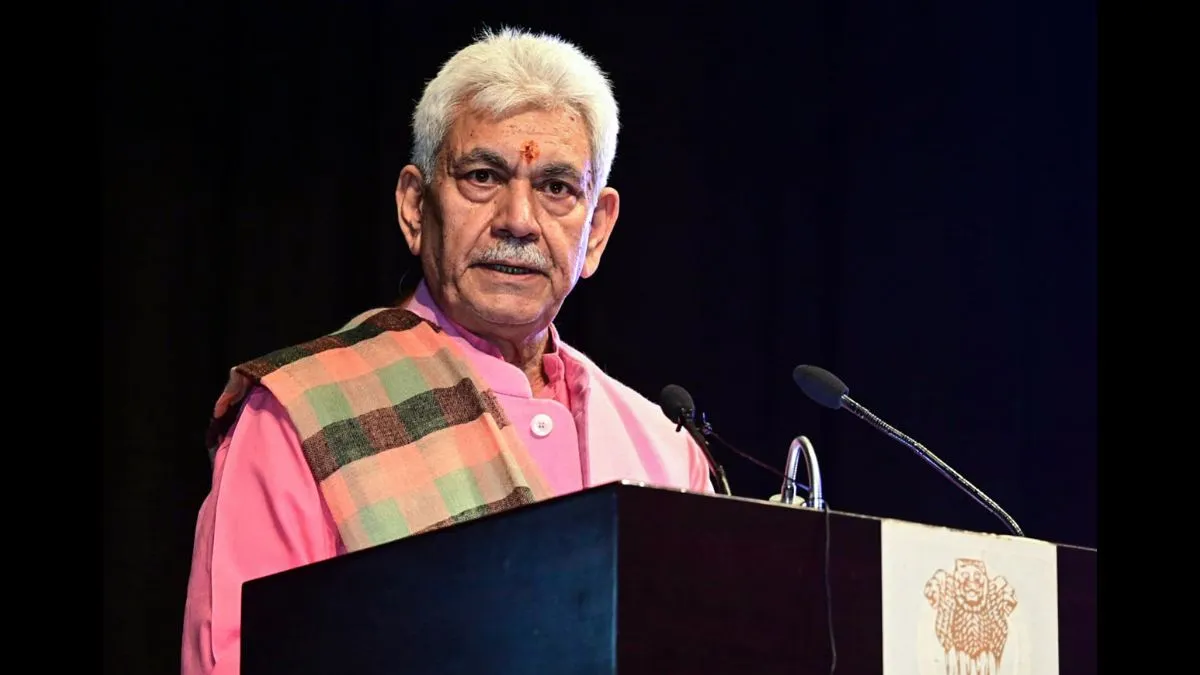The Jammu and Kashmir Lieutenant Governor, Manoj Sinha, recently held a meeting with families of victims of terrorism from across the region. This meeting, held at Raj Bhavan, aimed to address the grievances and concerns of these families who have suffered immensely due to decades of conflict and violence. The LG acknowledged the long-standing marginalization and exclusion of these families, highlighting their unheard voices and the need for immediate attention to their plight. Sinha’s commitment to justice, welfare, and rehabilitation signifies a significant step towards healing the wounds inflicted by terrorism and acknowledging the enduring suffering experienced by those directly affected by violence in the region. This initiative underscores a shift towards greater support for victims of terrorism, a marginalized group often overlooked during the broader context of conflict resolution.
Addressing the Marginalization of Terrorism Victims’ Families
The meeting at Raj Bhavan served as a platform for families to share their stories and experiences. Many recounted horrific incidents of violence, seeking the Lieutenant Governor’s intervention to resolve long-standing issues and challenges they face. These families have long endured immense hardship, often without adequate support or recognition from the government. Their experiences underline the deep-seated societal trauma resulting from decades of terrorism. Their plight demonstrates the wider societal issues of support systems for victims and families affected by violence. Their accounts underscored the lack of support and the often-overlooked emotional toll suffered by these families.
Understanding the Depth of Suffering
The accounts shared by the families vividly illustrated the brutality and lasting consequences of terrorism. The loss of loved ones, coupled with the ongoing challenges of navigating daily life in a region plagued by conflict, painted a picture of profound suffering and hardship. This prolonged trauma necessitates immediate support, including psychosocial care, rehabilitation, and appropriate legal representation. The lack of accessible help underscores the inadequacy of the current support systems in providing necessary services to these affected communities. This lack of government support for families facing such extreme trauma highlights significant gaps in the region’s social safety net.
Government’s Commitment to Justice and Rehabilitation
Lieutenant Governor Sinha expressed his commitment to ensuring justice, welfare, and rehabilitation for the families affected by terrorism. His assurance of governmental support represents a significant acknowledgment of their plight. The declaration implies a move towards a more comprehensive approach to counterterrorism, one that extends beyond solely security measures to include addressing the needs of victims and their families. The stated goal of dismantling the terror ecosystem also suggests a proactive approach to address the root causes of the conflict. It is a step that demonstrates an understanding that long-term peace demands a holistic approach.
Implementation of Support Systems
The promises of support necessitate concrete action to translate words into effective programs. The government must allocate adequate resources and develop sustainable systems capable of assisting these families effectively. The challenge lies in efficiently and equitably allocating these resources whilst dealing with numerous affected families. The establishment of dedicated support centres would facilitate access to social workers, mental health professionals, legal aid, and other relevant services that the victims’ families urgently require. Implementing comprehensive rehabilitation strategies is pivotal to address the physical, emotional, and economic scars resulting from terror activities in the area.
Security Forces’ Role in Counter-Terrorism Operations
While rehabilitation is paramount, the LG also emphasized the role of security forces in dismantling the terror ecosystem. The ongoing commitment to neutralizing terrorist groups and tackling the networks that sponsor them remains crucial for fostering a safer environment. This approach signals the continued effort to proactively address terrorism by tackling terrorist groups directly whilst assisting terrorism survivors. This two-pronged strategy of tackling terrorism and rebuilding communities is seen as critical to enduring peace in the region. Such a dual-faceted approach promises progress towards a safer and more peaceful environment.
The Importance of Collaboration
Successful counter-terrorism efforts require a multi-faceted approach involving close collaboration between security forces, government agencies, and civil society organizations. Shared intelligence and effective coordination across these various organizations are needed to provide efficient and coordinated support, thus fostering better synergy between agencies to ensure the successful implementation of government initiatives. Building strong collaborative relations is a prerequisite to providing meaningful support to terrorism-affected communities, allowing authorities to effectively respond to immediate crises, while engaging in the long-term development goals and fostering a community ready to move forward from this turbulent history.
Take Away Points
- The meeting highlighted the long-standing neglect of terrorism victims’ families in Jammu and Kashmir.
- Lieutenant Governor Sinha pledged support for justice, welfare, and rehabilitation.
- The government’s commitment includes dismantling the terror ecosystem and protecting the rights of affected families.
- Effective implementation requires comprehensive support systems, including psychosocial care, legal aid, and economic assistance.
- Collaboration between security forces, government agencies, and civil society is crucial for a successful counter-terrorism strategy and supporting the families.




